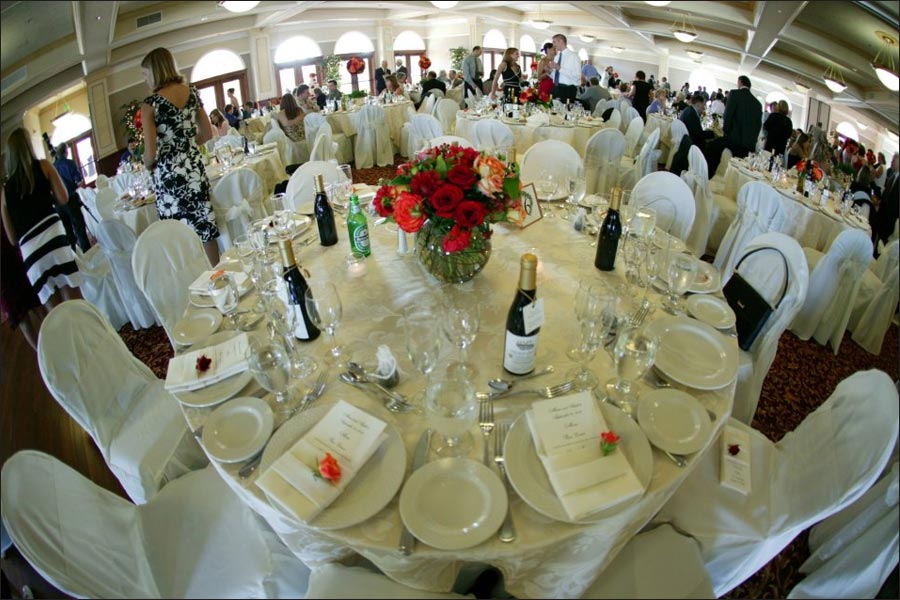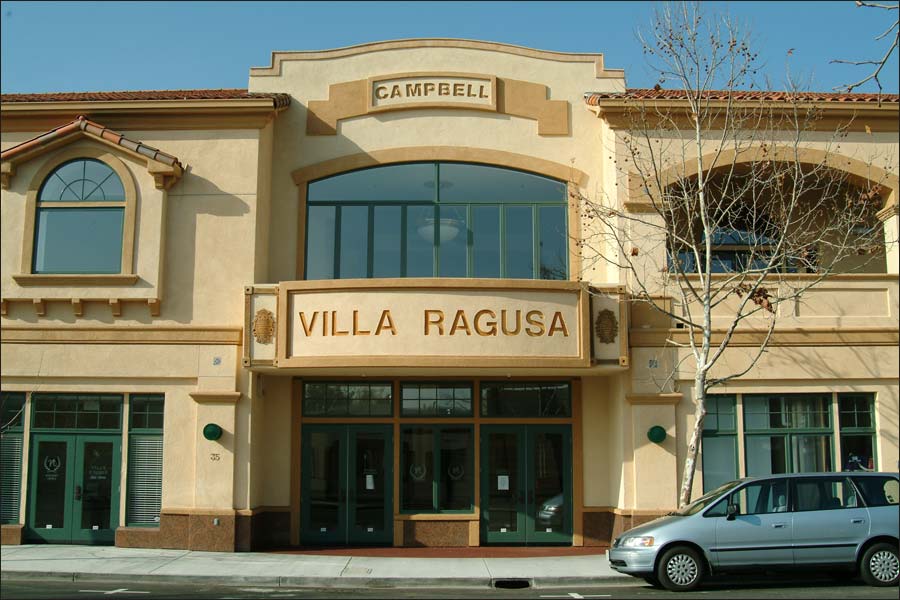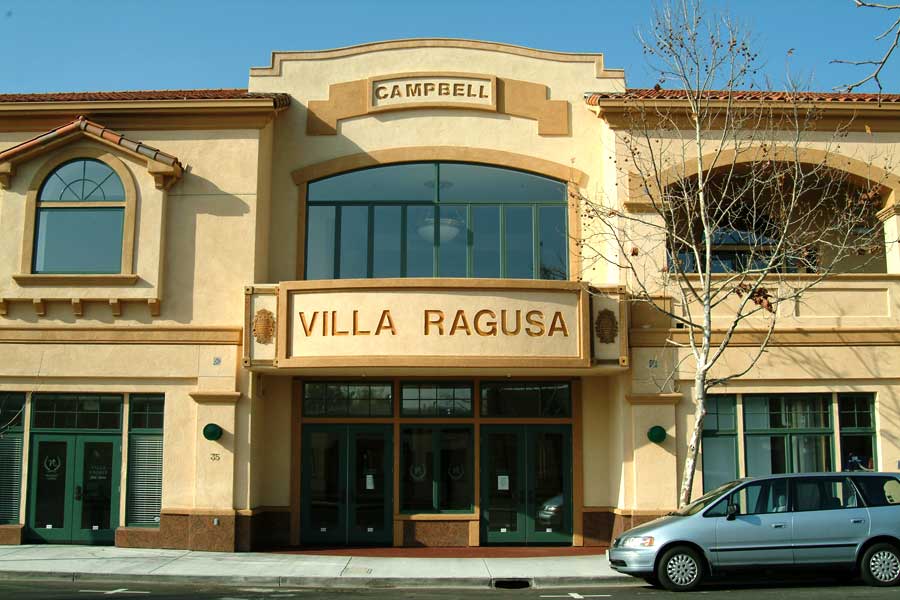
Conference Center, Corporate meetings, Event Planning, Event Venue, Private Club Venue, Social Hall, Wedding Venue
Villa Ragusa is happy to share the fact that we give discounts when you book during our slow times. We have no reason to hide this fact. If you choose those dates, you’ll rent them and we won’t run the risk of having no one in that space for this slow time on the calendar.
How to Get An Event Space Cheaper
Our busiest seasons are the wedding seasons in the spring and early summer and November and December which are booked tightly for private holiday parties and company parties for the winter holidays. It is during these times that our spaces go for a premium price.
Get Room Discounts
If you want to book the spaces at Villa Ragusa at a better price, you need to use our slow times to book your event. So, plan your event for a Wednesday & Thursday, instead of Saturday and Sunday. You’ll save quite a bit!
Catering Choices
Villa Ragusa has a full time kitchen that creates the meals for events held in our building. We do allow outside catering, as well, should you want to use your own favorite caterer. However, you’ll probably get a much better deal by using our in-house catering and the food will still be flavorful, delightfully appealing, and well-presented.
Go Cozy Not Spacious
Not only is a smaller room going to cost less than a big room, but you’ll have a better outcome if people are close together. When there is a lot of empty space in the room your guests will keep to themselves and not socialize. When there is very little empty space your guests will talk to others, participate more, and have a wonderful time. So, understand not everyone is going to show up and pick a room that’s a little smaller than you think you need.
We are Happy to Assist
When it is time to book a room for your event, give us a call and discuss it. We sometimes have rooms available right away. Contact us today and we’ll give you some tips on booking your event with a lower cost.

Company Party, Corporate meetings, Event Planning, Event Venue, Fundraising Events, Retirement Party, Seminars and Workshops
In an age of cookie-cutter affairs, injecting personalization into your next function moves the needle from ho-hum to extraordinary. The trick is in making your guests feel special.
Applying custom details with attendees in mind makes them feel warmly recognized as individuals, not faceless corporate drones simply filling seats. Little customized accents also elevate perceived event exclusivity and thoughtfulness.
Set the Tone Through Little Touches
Kick your affair off on an intimately personalized note before guests even walk through the door. Extend uniquely warm digital invites complete with name etchings.
Print up stylized name cards or place tags delivering that “wow” factor up front. The name tags help move the conversations in the group because they know how to refer to each other.
Indulge Attendee Preferences
Get granular accommodating individual guest preferences to make everyone feel special, not just the VIPs. Note favorite hors d’oeuvres and pour favored libations unprompted. Customizing menus around personal tastes and restrictions prevents exclusions.
Surprise & Delight Moments
Look for opportune moments during mingling to thoughtfully impress through hyper-personalization. Casually address special life events or interests paying dividends conversationally. Consider props like a slideshow of old photos tailored per table sprinkled throughout meals.
Lasting Parting Gifts
Send guests floating towards exits with meaningful personalized mementos evoking your event fondly for years. Monogrammed goodie bags come standard – but ratchet things up gifting custom art pieces celebrating individuals’ hobbies uniquely.
The Power of Post-Event Surveys
Solicit pointed feedback around what personalized touches attendees loved most alongside any new ideas. This cements your commitment to keeping things intimate while continuously elevating affairs around desires.
Sprinkling in personalization demonstrates you’re throwing more than just another corporate mixer. Guests want to feel special too, not like another bottom-line business calculation. What details could you incorporate?
Need help coming up with ideas to customize your event? Contact us at Villa Ragusa and we can help. Let us make the event one of the most successful and elevate your brand and business.

Banquet Hall, Company Party, Corporate meetings, Event Venue, Retirement Party, Seminars and Workshops, Social Hall
Beyond flawless cuisine and decor, event excellence hinges on attendees feeling genuinely pampered. When reputations and client relationships ride on impressions made at your Villa Ragusa corporate gathering, comfort demands your attention so guests feel peaceful, relaxed, and carefree. But how do you pamper your corporate guests?
Utilize Welcome Bags
Surprise out-of-towners with monogrammed swag bags during check-in containing essentials like personalized maps, local treat samples, mini first aid items, and hangover remedy kits.
This starts things on a thoughtful note so attendees feel supported navigating your event and Downtown Campbell in general. They feel they are in the right place.
Provide Transportation Ease
Skip rideshare scramble by organizing group shuttles between San Jose International Airport, nearby hotels, and your Campbell event venue.
One less travel stressor keeps everyone relaxed before stepping into your event space to impress. Consider extending shuttle access across Downtown Campbell’s vibrant bar district scene as well so guests skip driving risks mingling after hours.
Confirm Allergy/Dietary Needs
Email guests for any food allergy and restriction details weeks prior, then supply our caterers with consolidated guest requirements spreadsheets they can continually reference to prevent any reactions.
Keep additional EpiPens for undisclosed needs. Showing this level of dietary diligence wins major points. It is such a level of attention to detail in the organization that tells guests you have thought of everything. They also realize that they’re in safe hands with your business.
Supply Multiple Charging Stations
With a heavy camera, texting, and social media usage expected, install charging lockers around the event space so depleted phone batteries never thwart capturing memorable moments. Tabletop power strips also encourage continual usage without worrying about dying mobile tools.
By encircling attendees in five-star comfort every step, your guests center focus stays on your event’s core purpose without real-world intrusions. Wowing clients with Villa Ragusa’s grandeur is step one – now exceed expectations through customized hospitality excellence reflecting your brand panache!

Company Party, Corporate meetings, Event Venue
As an organization hosting corporate events, choosing the right venue can make all the difference. It’s about creating an atmosphere that leaves a lasting impression and helps your brand.
Here are tips on how you pick the perfect event space that helps optimize your return on investment (ROI) simply and clearly.
First Impressions Matter
You never get a second chance to make a first impression.
Simply, the venue sets the tone for your event. If it’s welcoming, comfortable, and aligned with your corporate image, attendees are more likely to have a positive first impression. Happy guests are more engaged, and this is an important ingredient for a more successful event.
Guest Satisfaction
The proof of the pudding is in the eating.
So, when your guests are comfortable and enjoying themselves, they are more likely to have a great experience. Satisfied guests are more likely to talk positively about your event, leading to a better reputation for your corporation.
Productivity Boost
Hosting an event in the right venue can increase productivity. A comfortable and inspiring space can help attendees focus on the content and purpose of the event.
Accessibility and Convenience
A well-located venue that is easy to access can save time and effort for your attendees. They will appreciate the convenience, making it more likely they will attend future events.
Cost Savings
A penny saved is a penny earned.
The right venue can offer cost-effective solutions. Maybe it includes audiovisual equipment, catering, or other amenities, reducing the need for external services and saving you money.
Business Outcomes
Ultimately, the ROI of a corporate event is tied to its impact on your business. A well-chosen venue can contribute to better networking opportunities, stronger partnerships, and increased brand awareness. These can lead to tangible business outcomes.
Repeat Business
If your guests have a fantastic experience at your event due to the perfect venue, they are more likely to return for future events. This can lead to long-term relationships and increased ROI over time.
Talk to us for ideas on how to make the most of your corporate event.

Conference Center, Corporate meetings, Event Planning, Event Venue, Seminars and Workshops
Networking is often a key goal for corporate events. Name one that isn’t! You see, building connections can open doors and lead to valuable opportunities that greatly help your business. Here are some simple strategies for creating memorable networking opportunities at your corporate event.
Layout Matters
The way the event space is set up can influence networking. Is crumpled? Disorganized in some areas? Creating the perfect networking layout is an attention to detail task, and some times, you don’t have the time. We can help you arrange seating and meeting areas to encourage interaction. Villa Ragusa understands that an open and inviting space can make it easier for attendees to connect.
Icebreakers and Games
Breaking the ice can be tough, especially for some people. Consider incorporating icebreaker activities or games into your event. These can help attendees feel more comfortable approaching new people. Another idea is to create dedicated networking zones within the event space. These can be designed to promote mingling and conversation.
Speed Networking
Since time is of the essence, organize timed networking sessions where attendees rotate and meet new people quickly. This keeps the conversation flowing and maximizes connections made.
Consider Name Tags
Provide name tags with large, legible fonts. This makes it easier for attendees to remember each other’s names, which can be a significant conversation starter.
Comfortable Seating
We can help make seating comfortable and conducive to conversation. Uncomfortable chairs can discourage people from staying and networking.
Food and Beverage Stations
Food is the way to the heart. Place food and beverage stations strategically throughout the event space. These can serve as natural gathering points for networking.
Facilitators and Resources
Consider having experienced facilitators or hosts who can introduce attendees to one another and keep conversations flowing. Provide resources for attendees to follow up after the event, such as a directory of participants or a platform for continuing conversations.
Talk to our event organizers about creating memorable networking opportunities for your business. We understand that each firm is different, and so are the needs. Talk to us!

Banquet Hall, Conference Center, Corporate meetings, Event Planning, Event Venue
Have you ever been to an event where good food is not part of it? It’s uninspiring! The culinary experience is at the heart of a memorable event.
At Villa Ragusa, we understand the importance of exquisite dining, and we’re here to elevate your event with a culinary journey that will leave your guests craving for more.
A Feast for the Senses
At Villa Ragusa, dining isn’t just about satisfying your hunger; it’s about indulging your senses. Our culinary team crafts dishes that are not only delicious but also visually stunning. It’s like a work of art on your plate, a true feast for the eyes.
Local Flavors, Global Inspirations
California is known for its diverse culinary scene, and we take full advantage of that. Our chefs draw inspiration from local ingredients and global flavors to create a menu that’s both familiar and exciting. From farm-fresh salads to international delicacies, we have something to please every palate.
Customizable Menus
We understand that every event is unique, and so are your culinary preferences. That’s why we offer customizable menus to suit your needs. Whether you’re planning a corporate luncheon, a wedding reception, or a milestone birthday celebration, we’ll work closely with you to curate a menu that reflects your taste and style.
Expertly Paired Wines
No fine dining experience is complete without the perfect wine pairing. Our sommeliers are experts at selecting wines that complement your meal flawlessly. It could be a bold red or a crisp white. Whatever you prefer, we ensure that your glass is never empty.
Attentive Service
At Villa Ragusa, we believe that exceptional service is just as important as the food itself. Our staff is trained to provide attentive and courteous service, ensuring that your dining experience is nothing short of extraordinary. Your guests will feel pampered and well taken care of.
The Perfect Ambiance
Dining isn’t just about what’s on your plate. It’s also about the atmosphere. Our elegant dining spaces provide the perfect backdrop for your culinary journey.







Recent Comments